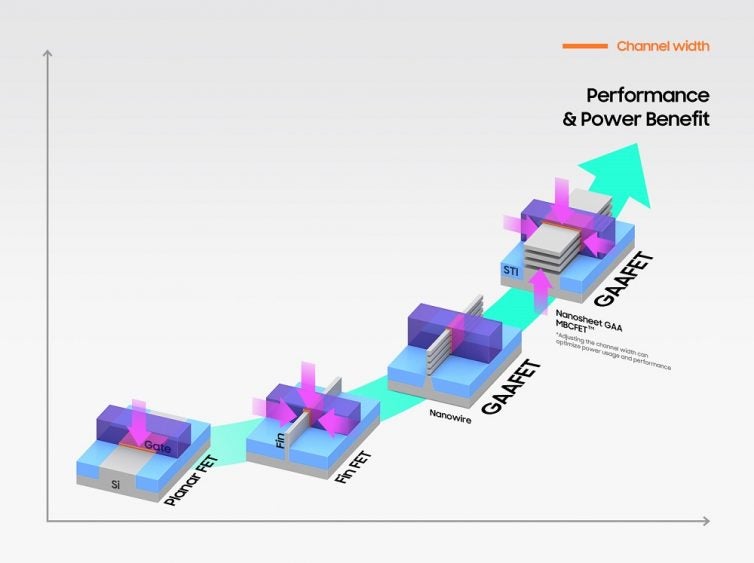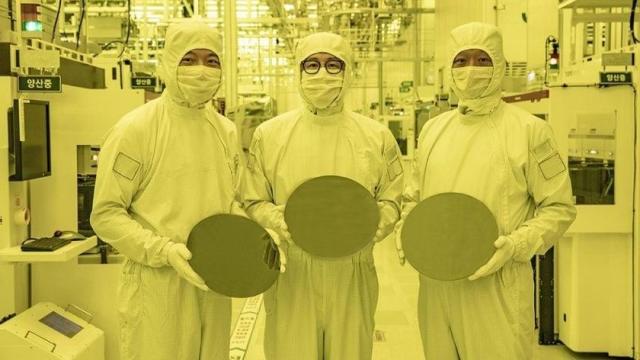Samsung has crossed the 3nm finish line ahead of TSMC, beating the Apple supplier to the production of 3-nanometre chips. In doing so, Samsung is now on pace to release the most advanced chips in the world. According to Samsung, the new fabrication process is 45 per cent more power efficient and delivers 23 per cent better performance than the previous 5nm process.
These gains are achieved using a process called Gate-All-Around transistor architecture (GAA FET), an update on FinFET, on a surface that has a 16 per cent smaller surface area than before. Samsung said the process would be used for “high performance, low power computing” with mobile processors coming later, and that a second-generation 3nm process will reduce power consumption by 50 per cent and improve performance by 30 per cent on a 35 per cent reduced area.

Being the first to enter the market demonstrates Samsung’s position as a cutting-edge chip manufacturer. However, the Korean tech giant has a long road ahead to prove itself against TSMC, the Taiwanese chipmaker that dominates market share and manufactures the chips for Apple’s iPhones, iPads, MacBooks, and Macs, plus supplies wafers to fabless semiconductor companies like Nvidia and AMD. TSMC currently accounts for more than half of the global foundry business by revenue, Bloomberg reports.
“We will continue active innovation in competitive technology development and build processes that help expedite achieving maturity of technology,” said Siyoung Choi, president and head of Samsung’s foundry business.
While a major milestone for Samsung, the production of 3nm chips likely won’t have much of an impact on TSMC in the next 12 months, Bloomberg argues. The Galaxy smartphone maker will first need to demonstrate that it can produce with the same cost efficiency as its rival before companies come calling for its chips.
Samsung and TSMC are currently competing for multi-year deals with Apple and Qualcomm, two mega tech firms awaiting mass production of 3nm chips that could improve the performance of existing products while enabling new technologies. Samsung will manufacture these chips in South Korea at its Hwaseong facilities before expanding to Pyeongtaek. The company is currently building a plant in Texas where it could spend more than $US10 billion to produce 3nm chips.
Achieving 3nm is a small victory, but with TSMC supposedly set to start high-volume production of 2nm technology in 2025, with chips coming in 2026, Samsung will need to keep its foot on the pedal to have any chance of overtaking its fiercest competitor.
